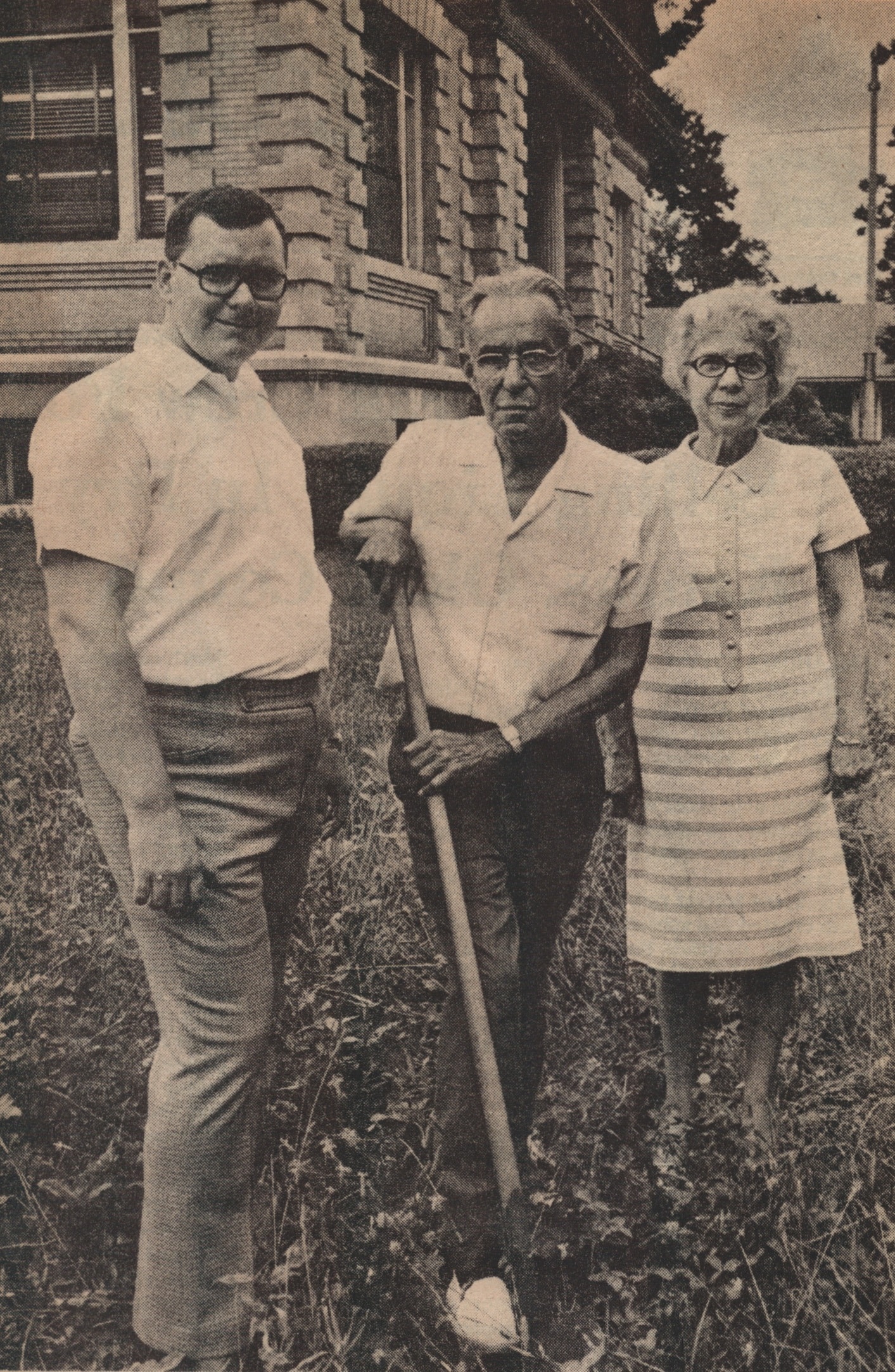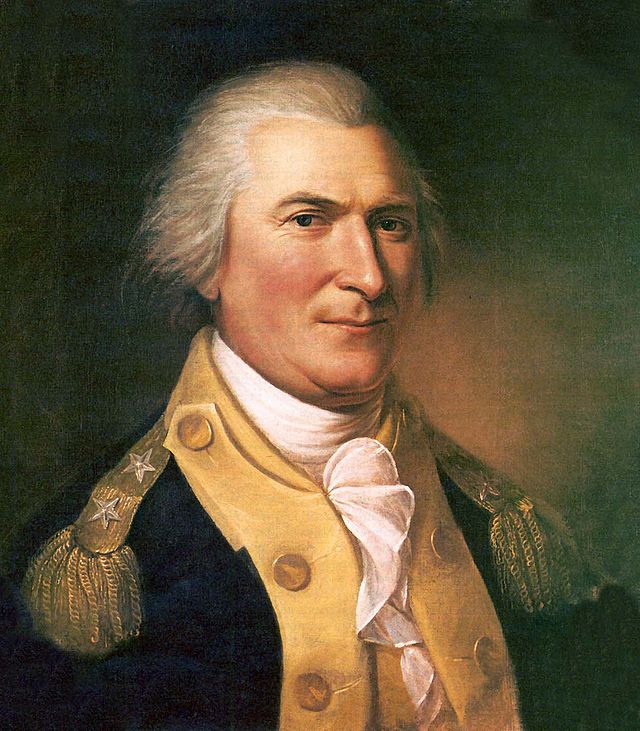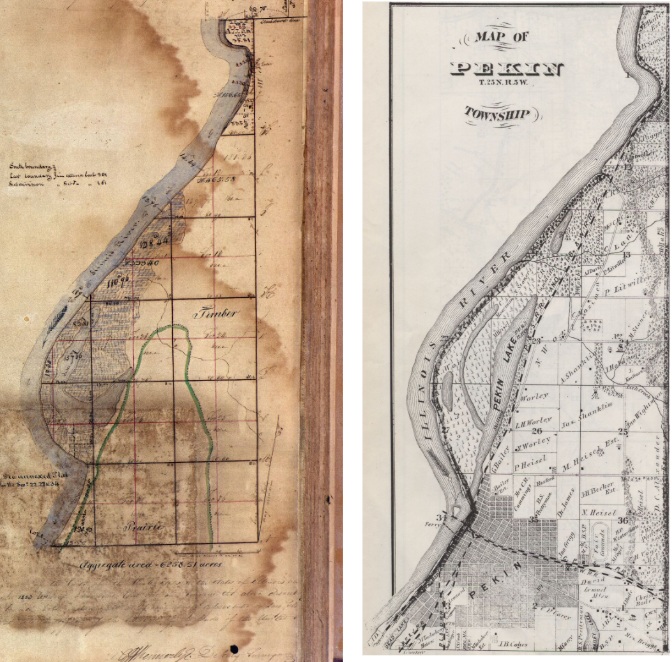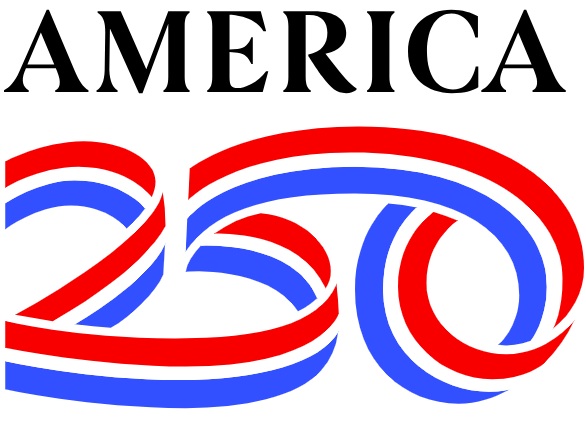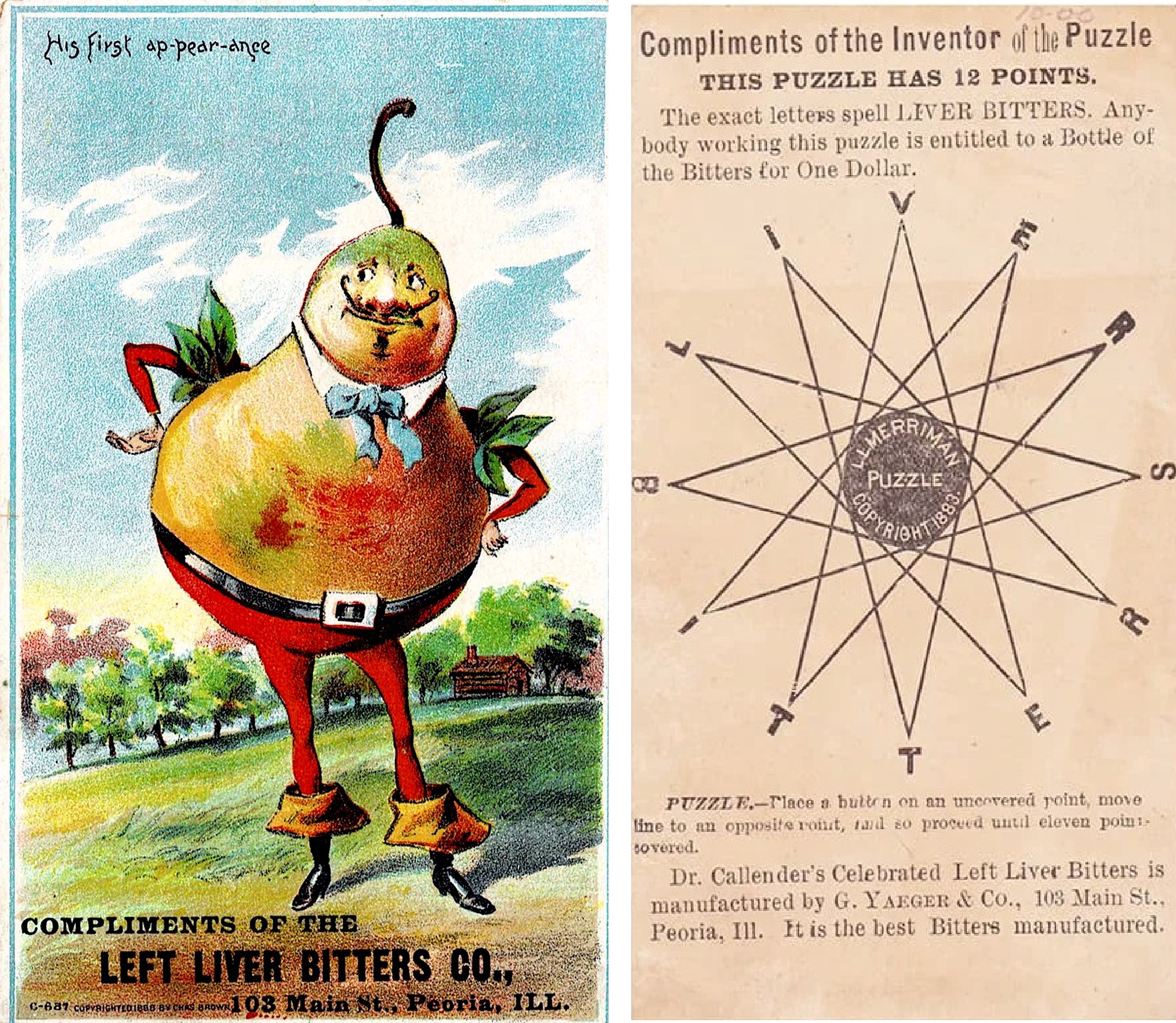Up to this point in our series on the history of the Pekin Public Library, we have related the steps that were taken to design a new library building that would include a Dirksen Congressional Research Center, up to the moment on June 20, 1972, when the Pekin library board accepted the bid of Del Construction Co. of Washington, Ill., to build the new 32,500-sq.-ft. library and Dirksen Center for $1,111,780.
In the month following, a special ground-breaking ceremony took place adjacent to the Pekin Carnegie library to initiate the actual construction of the new building. The ground was broken on July 18, 1972, by George Stolley, library board vice-president and chairman of the building committee, along with library director Richard Peck and library board president Miss Josephine Jubain.
While workers dug up the ground, poured concrete, and the new structure rose from the ground, the library’s staff occupied its time in a major project by which the old bookcard index filing system that had been in use, with few significant modifications, since the early 1900s, was replaced by a microfilm circulation system. This switch-over took place in February of 1973.
About three months after that, construction work paused momentarily so workers could pry the Carnegie library’s cornerstone free, enabling access to the time capsule that had been sealed in the cornerstone on Aug. 19, 1902. The ceremonial opening of the time capsule took place on May 31, 1973, and it was found that the collection of 34 preserved mementos were all in excellent condition despite being confined in the capsule for almost 71 years.
The Pekin Daily Times news report on the opening of the time capsule describes the event in these words:
“A small black metal box, well preserved in its chiseled-out niche in the cornerstone of Pekin Public Library, today yielded a surprisingly varied view of the community nearly 71 years ago.
“Installed by the Masonic Fraternity on Aug. 19, 1902, the box was pried from its mooring this morning in bright sunlight at the corner of Broadway and S. Fourth streets, after an earlier postponement because of rain. Only a small group of curious persons, who happened on the scene, and a cluster of newspeople witnessed the opening, after the box was lifted from the 900-pound stone. Because of the dimensions of the container – about five by five by nine inches – some of the contents had been trimmed to fit. A border slicing had been performed on some old city directories, for instance.
“After construction workers handed the box down from the corner of the soon-to-be-demolished building, Pekin Mayor William Waldmeier, Library Board President Josephine Jubain and Librarian Richard N. Peck revealed the items enclosed – ranging from a photograph of and letter from Andrew Carnegie and a warranty deed to the real estate occupied by the building to a 1902 copy of the Pekin Daily Times and issues of other local newspapers of the day. A catalog of products of the Smith Wagon Co. was among the items, as were several lists of Masonic members and officers, who had raised the money for the laying of the cornerstone.”

After the time capsule was opened, the copper box and its contents were preserved in the vault of Herget Bank, but about 20 years ago they were transferred to the library’s own historical archives. Photocopies of the items are kept in a vertical file in the library’s Local History Room.
In our ongoing library history series, we have previously described the contents of the 1902 cornerstone, and have been illustrating these columns with photographs and digital scans of documents and relics from the cornerstone.
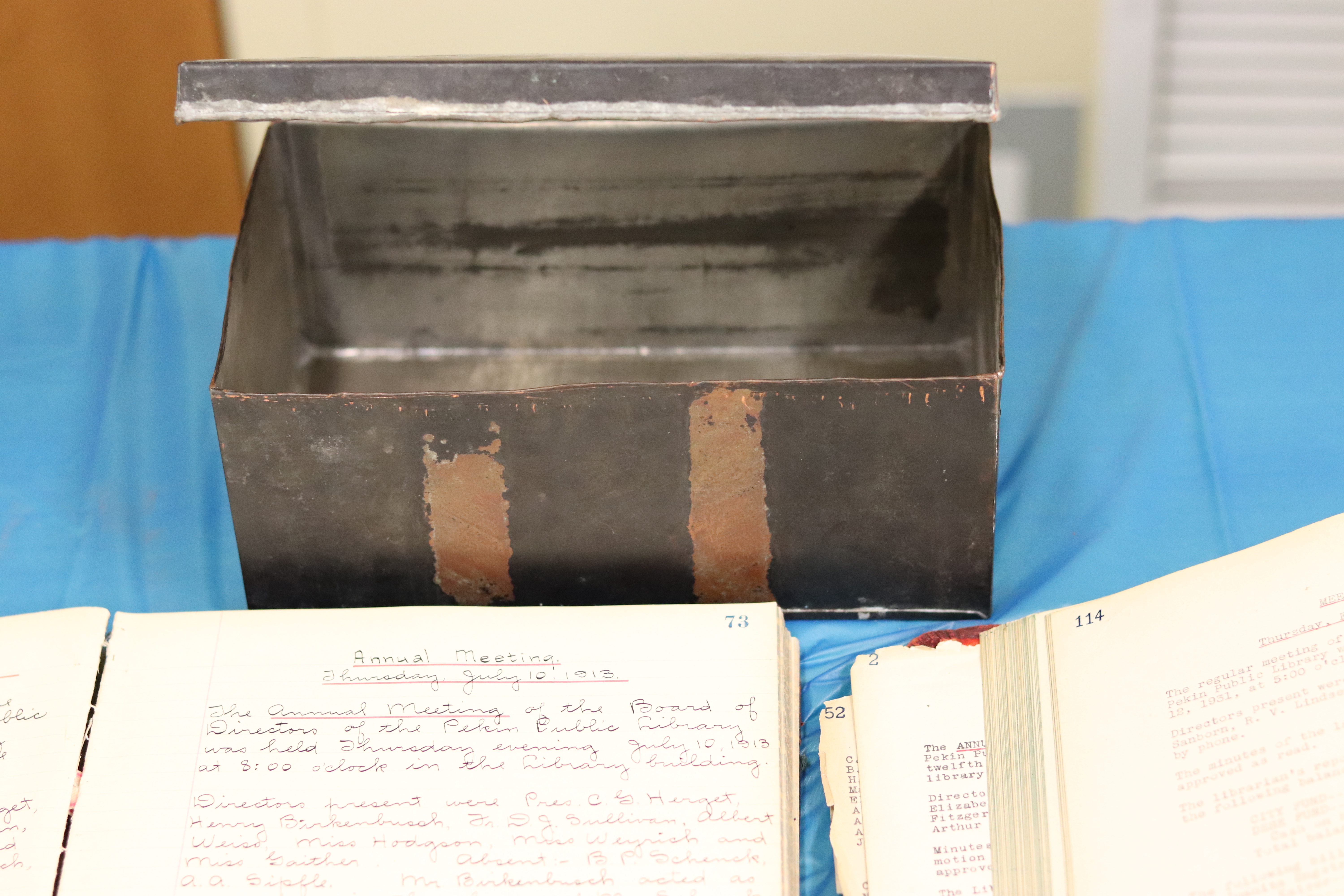
The Pekin Public Library is currently exhibiting many of the cornerstone time capsule mementos in two display cases in the library’s Local History Room and in a third display case located under the stairway to the library’s second floor. The Local History Room exhibit will remain on display through the end of the year. The Local History Room is open during the library’s regular hours.
Next time we will tell of one of the most memorable events in the history of the library, and of Pekin itself – the visit of U.S. President Richard Nixon to dedicate the cornerstone of the new library and Dirksen Congressional Research Center.
